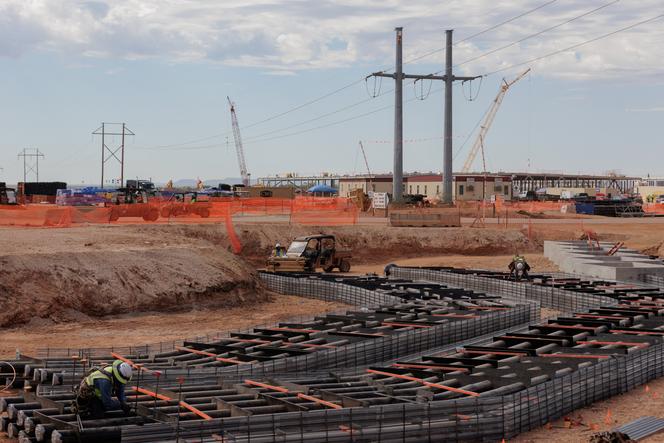Among the many questions raised by the rise of artificial intelligence, its compatibility with decarbonization should be a central concern. For centuries, humanity has paid little attention to the environmental impact of technological innovation. The promise of economic growth and prosperity has routinely taken precedence over the finite nature of resources and the potential externalities for people and the environment.
AI, hailed as a major revolution, is now on track to exacerbate these past mistakes. Its rapid spread, the explosion of applications, and above all, the astronomical amounts of energy required for its operation demand urgent reflection on the sustainability of its expansion.
In a report published on Wednesday, October 1, the Shift Project, a think tank chaired by engineer Jean-Marc Jancovici, offered a sobering assessment. According to its calculations, electricity consumption by data centers – vast warehouses packed with hundreds of constantly running computer servers – is expected to triple by 2030. AI will account for between a third and a half of this total, compared to just 15% today. That trajectory is unsustainable.
The global frenzy of investment to install new data storage capacity will increase greenhouse gas emissions at precisely the moment when other sectors of the economy are striving to reduce theirs to meet the goals of the Paris Climate Agreement. This climate incongruity is explained by the fact that, especially in the United States, electricity is mostly produced from CO2-emitting fossil fuels. Donald Trump’s halt of renewable energy production and the time required to develop new nuclear reactors offer little hope of reducing the carbon footprint of major tech players in the medium term.
 An OpenAI data center under construction in Abilene, Texas, on September 23, 2025. SHELBY TAUBER/REUTERS
An OpenAI data center under construction in Abilene, Texas, on September 23, 2025. SHELBY TAUBER/REUTERS
And even when electricity is decarbonized (from nuclear, wind, solar or hydropower), as in France, the surge in consumption driven by AI risks sparking conflicts over usage, to the detriment of other sectors that have no choice but to electrify to cut their CO2 emissions. If data centers absorb most of the growth in green electricity production, which will struggle to keep up with demand, prices will rise and the decarbonization trajectory could be jeopardized.
The notion of “techno-solutionism,” asserting that AI could achieve sufficient energy savings to make the process sustainable, is an illusion. The exponential increase in use makes it highly unlikely that efficiency gains from innovation will offset demand.
The Shift Project deserves credit for opening a debate about AI’s role in decarbonization. They suggest limiting electricity use by setting caps and making decisions on a case-by-case basis, giving preference to essential uses. Environmentally, that makes sense. But economically, it goes against the fierce global competition to attract AI investment, which governments see as strategic for power and sovereignty. It is, unfortunately, unlikely that Trump or Xi Jinping will heed this call for restraint.
Read more Subscribers only Macron boasts France is ‘back in race’ on AI
Translation of an original article published in French on lemonde.fr; the publisher may only be liable for the French version.
